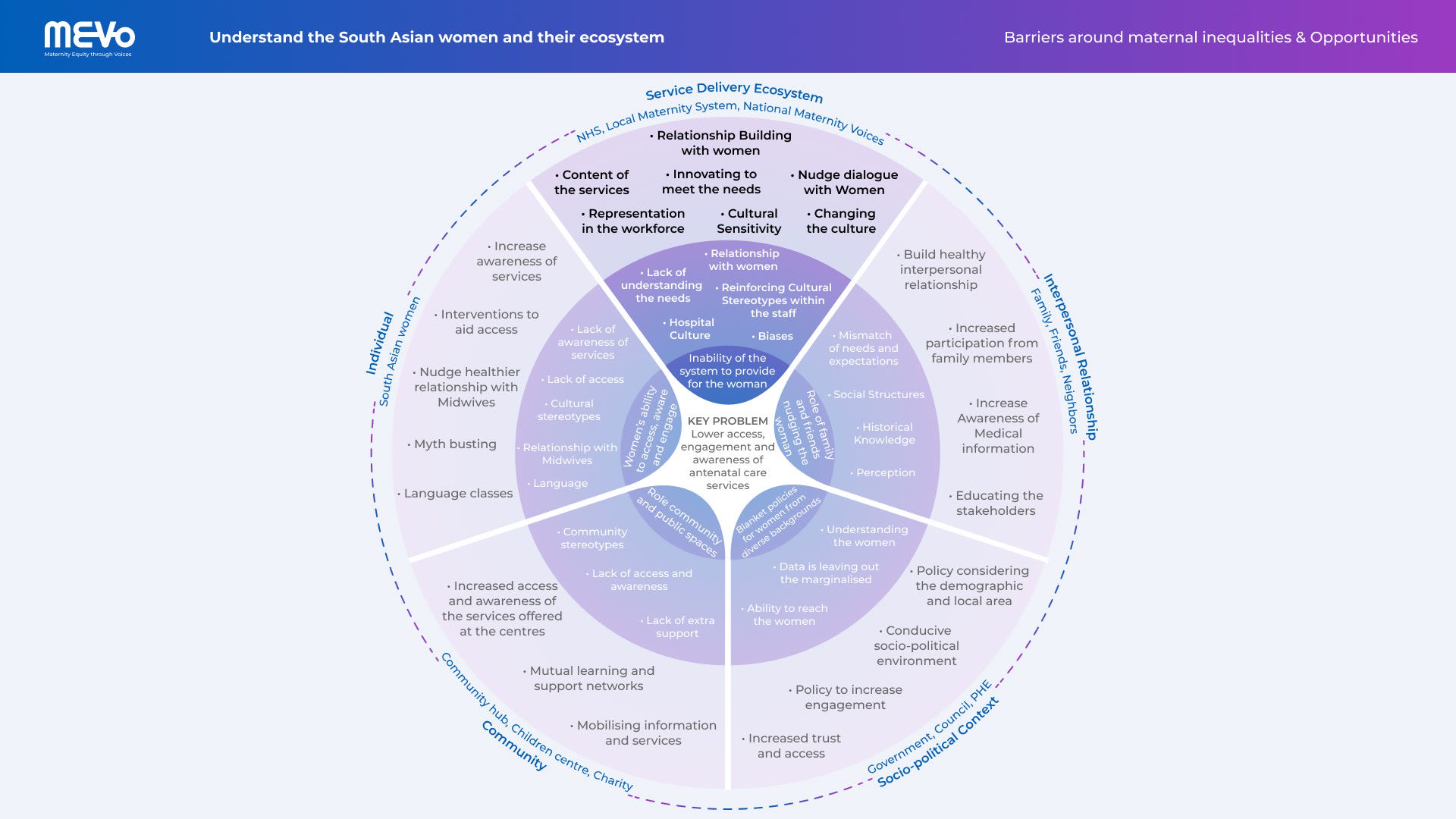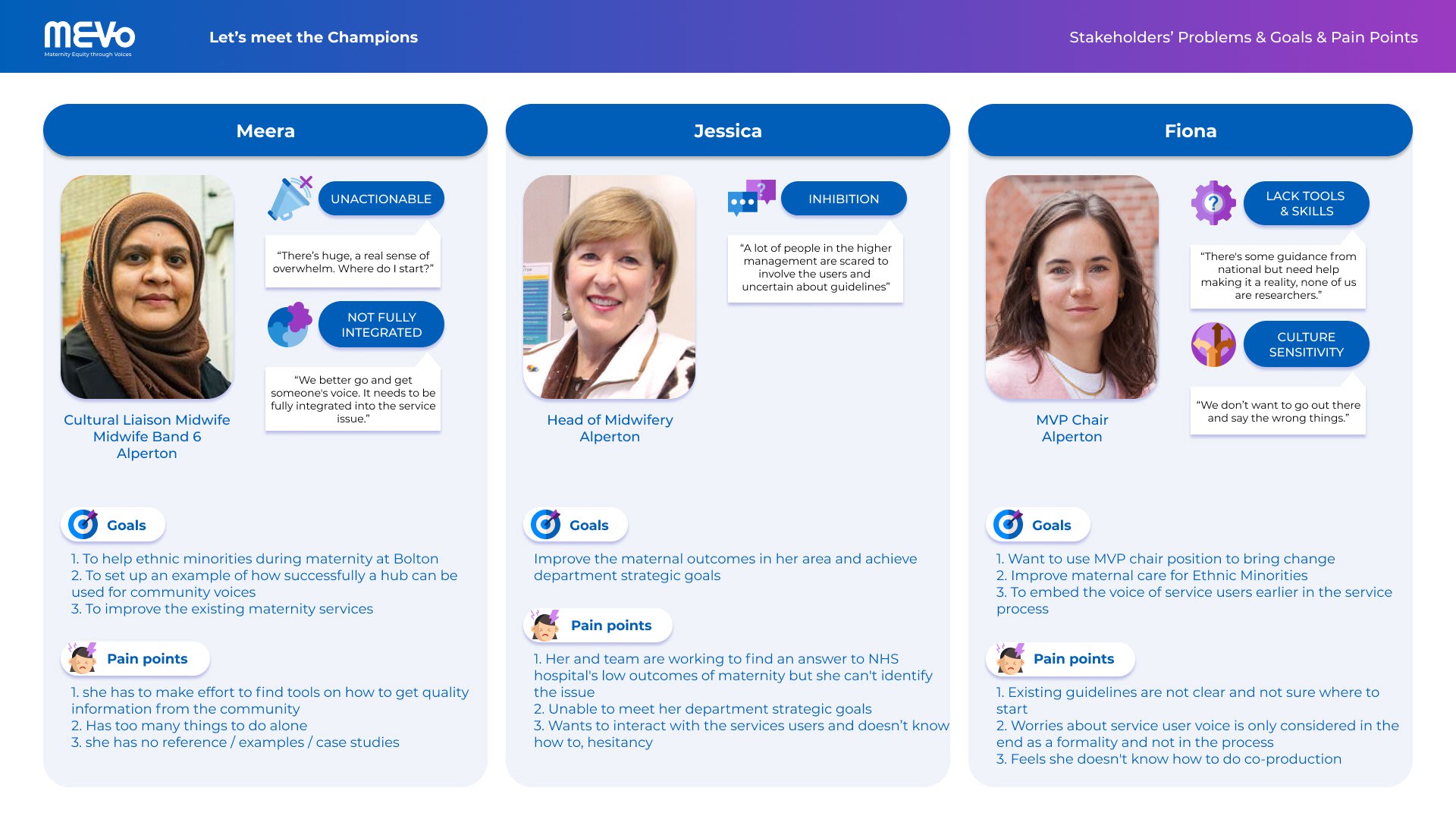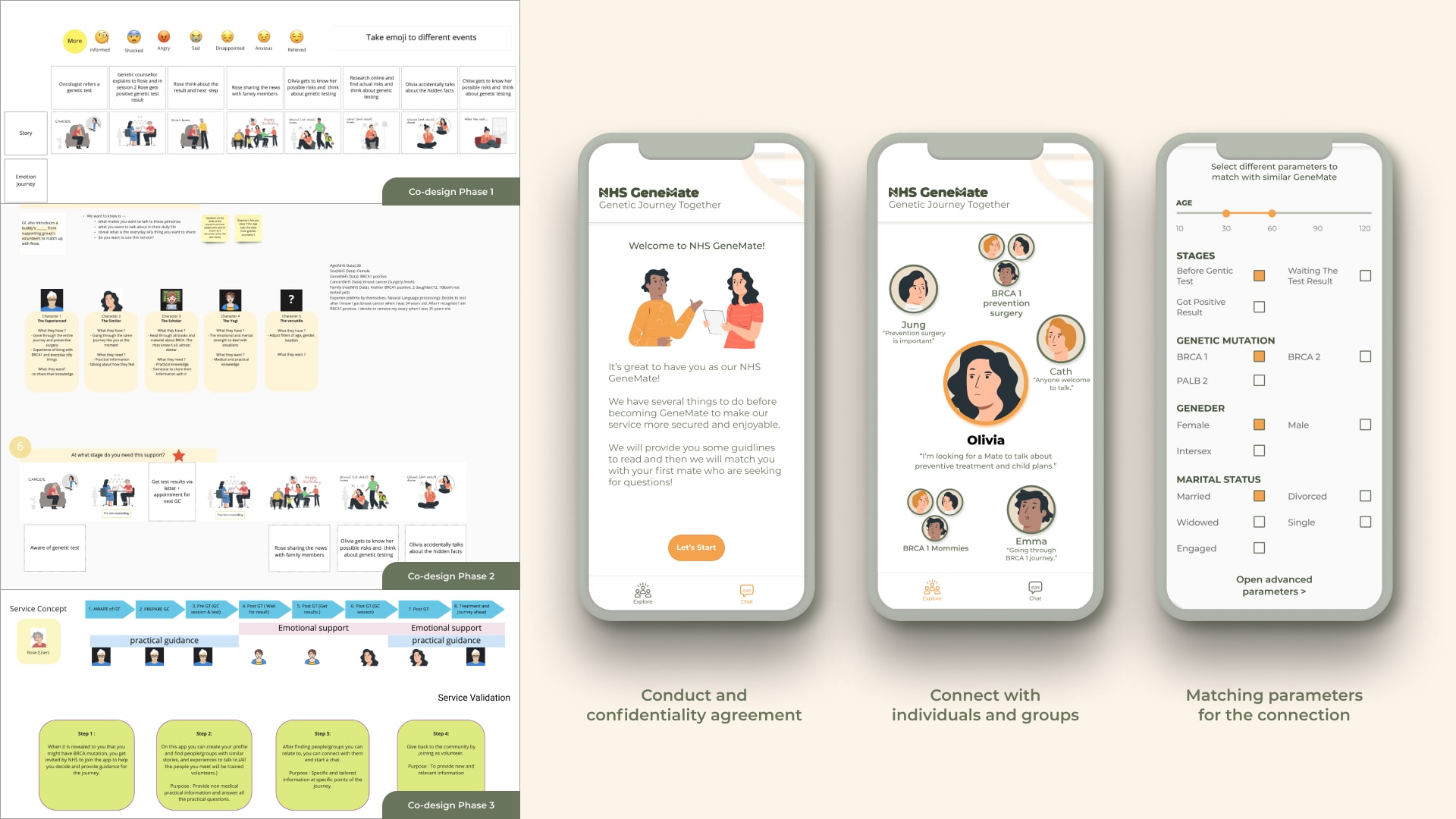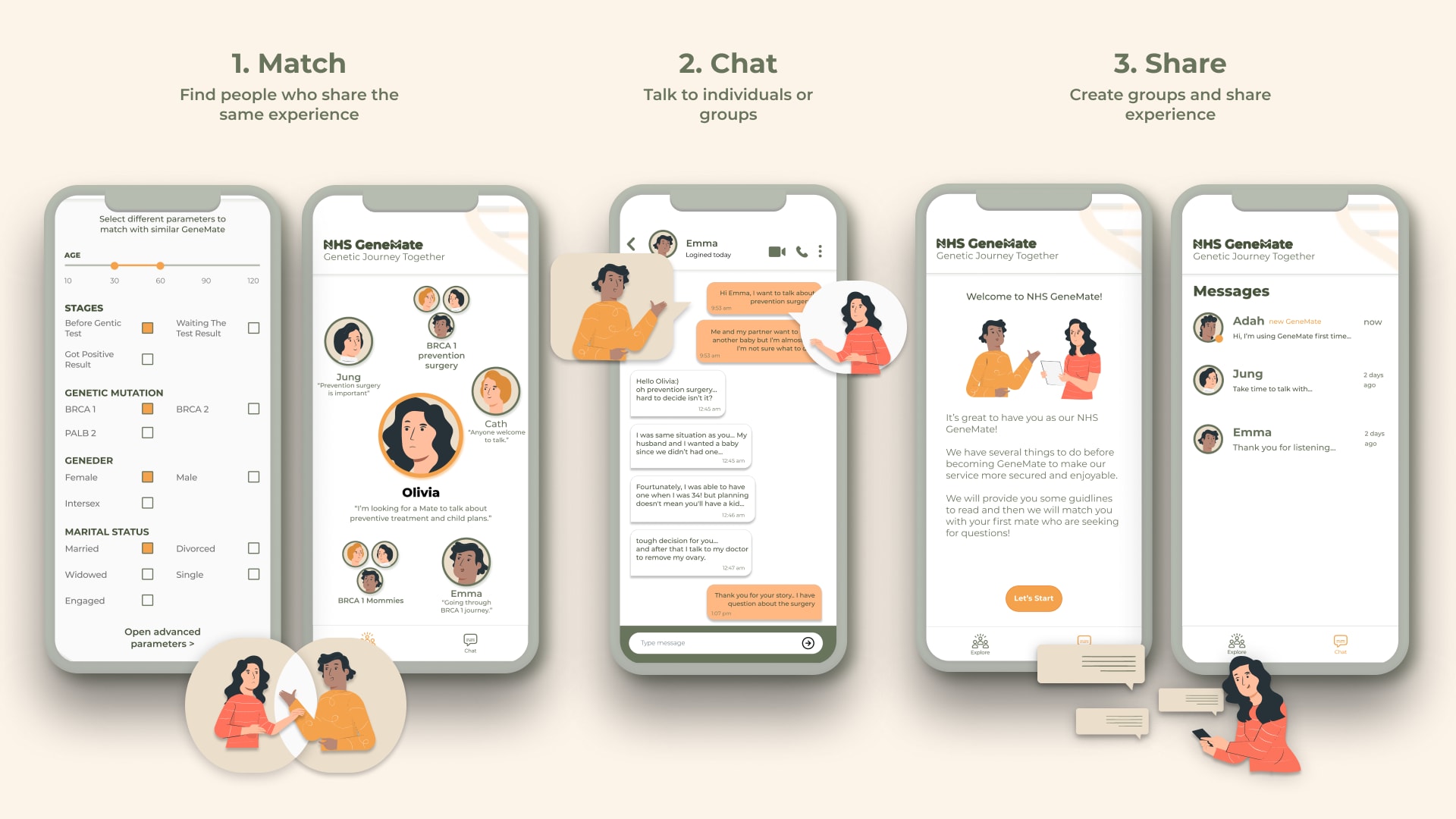Beyond the Genetic test pathway
Genetic Testing detects gene mutations that cause rare diseases, inherited cancer and other genetic conditions. Within the long term plan, the NHS aims to make genomics part of routine care to provide preventative and personalised healthcare to the citizens of the UK . However, the test revealing a mutation is a life altering moment for the patient and continues to affect the family for generations to come.During this journey, the patient and their family face a lot of uncertainty and anxiety. They have to make life-changing decisions in the present as well as for the future leaving them with a lot of questions. This project focuses on this key moment in the genetic journey and aims to help inform the next necessary steps for patients and family members.
The complexities of the Genetic Journey
Genetic test is just a starting point on a long and complex journey. The preventative surgeries and follow-ups can sometimes continue on for years. Some patients already have cancer and do a genetic test to determine a mutation and while some patients undergo predictive tests as someone in their family tested positive. The levels of complexity vary from each person depending on their age, gender, type of mutation and even the life stage they are at, so information needs to be highly tailored and specific. Interestingly, people are not only looking for medical support but also for everyday practical information and emotional support from experienced patients. While market analysis showed that medical professionals provide medical information and charities provide practical generic information, we saw an opportunity to provide both practical and emotional support to patients and family members that is tailored to individuals at different stages.
Designing for and with the stakeholders
Since genetic testing and the journey beyond is a sensitive subject, we used co-design as the strategy to formulate a solution fit for the key stakeholders involved : the patients, the family members and the genetic counsellors. Our co-design participants continuously collaborated to build solutions step by step and eventually helped us validate our ideas, as well as work on the loopholes. The prototype sessions helped us to create an efficient way to connect with individuals and groups, matching parameters for the connection, as well as to create a confidentiality agreement to reduce the risk of sharing private medical information. Spending time in understanding our users also inspired us to create an incentive to join back to the service as a mate, while also addressing questions about data sharing & privacy.
NHS GeneMate in action
NHS GeneMate has 3 main features, Genemate matches you with individuals and groups with the same experience. You can choose from specific parameters depending on your needs and life stages. Matching helps to build intimate connections and get stage-appropriate advice to avoid unnecessary confusion. Secondly with GeneMate, you get a chance to chat with individuals and groups, about your questions and issues and simultaneously build close bonds with experienced patients. Thirdly, you can join back as a mate to connect, create groups and help more people like you by sharing your story, fears and successes.
Small actions, Big Impact
GeneMate provides benefits for patients, family members, and the NHS. Social prescribing will enable the patients to feel prepared by informing them about what to expect before medical appointments. NHS will benefit from this as it will result in reduction of burden and time for NHS medical staff. With GeneMate, patients and family members feel supported mentally and emotionally throughout their journey by experienced patients. NHS will benefit from this as the cost of mental health problems of hereditary cancer patients and their relatives might reduce. GeneMate provides practical tips to help people navigate the journey. We estimate it will increase awareness and user engagement, aligning with the plan to make genetics part of routine care. Additionally, GeneMate will aid in developing a niche community that will help in building trust among the people taking the test. NHS will benefit from this as awareness and engagement increases within the UK.
The Road ahead
As of now GeneMate is a pilot that helps patients and family members of Hereditary Breast and Ovarian Cancer syndrome. Looking at the potential impact, GeneMate will grow to cover all patients and family members of all types of hereditary cancer soon and eventually to all genetic conditions within the UK.
Special Thanks :
Demetra Georgiou, our partner at Genomic Medicine, Imperial College Healthcare Trust and the North West Thames Regional Genetics Service for guiding us through the project. Thanks to all the experts, oncologists, GPs and charities who added to our knowledge. Special mention for all our participants who have been so open, shared their life stories with us and collaborated with us on our project.
Project Partner : NHS Imperial Healthcare Trust
Collaborators : Hyunjin Jo, Li Ning and Yasuhiro Yamauchi










